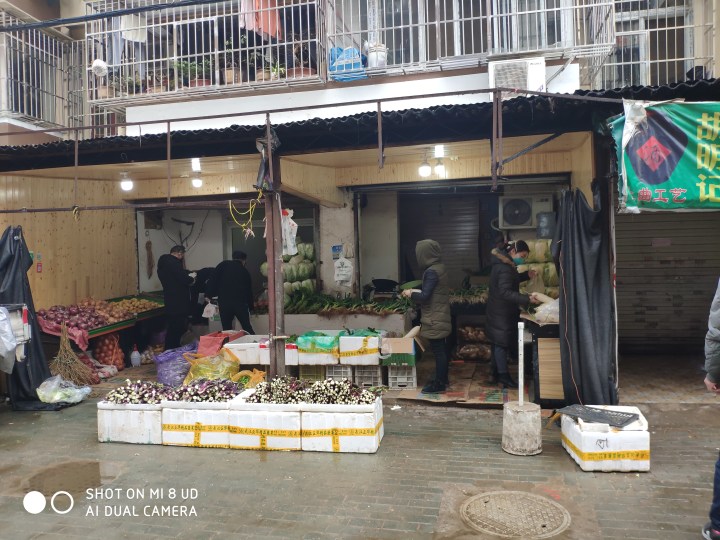
What people are (and aren’t) spending money on during the coronavirus outbreak
What people are (and aren’t) spending money on during the coronavirus outbreak

The Lunar New Year holiday is typically a time when Rebecca Huang spends on clothes, gifts and dining out with family and friends.
However, with the outbreak of the new coronavirus this year, Huang has mostly stayed at home with her husband and child.
“Every day, I eat, sleep, watch a TV series or play Mahjong,” Huang said from her home in the eastern port city of Qingdao.
Chinese officials have advised citizens to go out less and avoid crowds to decrease the risk of spreading the virus, which is related to the severe acute respiratory syndrome (SARS) and Middle East respiratory syndrome (MERS) viruses, and currently has no cure.
“Avoid parties, events, the cinema, karaoke bars, shopping malls or places that attract crowds,” a public service announcement read on Shanghai’s transportation station.
Across China, most businesses have not resumed operations following the Lunar New Year holiday extension to Feb. 3 because of the outbreak. Even if Chinese citizens do venture out, there’s not much to do.
The shopping center where Huang’s clothing shop is located remains shut until further notice.
“Public parks, museums and aquariums are all closed, too,” Huang said.
There is a lot of anxiety about catching the virus.
“The incubation period for this virus is long” said Huang. “Not far from where I live, there was a case where a person went on a trip to Yunnan on Jan. 13, was in contact with someone from Wuhan City, and got infected. The patient didn’t show symptoms until Jan. 26 so, the incubation period is 14 days.”
Since it is not clear who might be sick, schoolteacher Jane Ma, in northern Liaoning province, has limited contact even with couriers.
“I don’t do as much online shopping now,” Ma said. “Plus, delivery companies are still short-staffed, and I don’t want to add to the burden on the country’s logistics system.”
Normally, Ma and her husband would spend roughly 10,000 yuan ($1,400) for the Lunar New Year holiday on clothing, food, dinners and cash gifts for children.
It was the same story for Zhang Liying’s parents in eastern Zhejiang province. However, her father canceled all restaurant bookings and family gatherings on Lunar New Year’s Eve.

(Courtesy of Rebecca Huang)
The fear of contracting the virus also led Zhang to cancel a planned vacation to Europe.
“I was afraid there would be too many people on my journey, and it wouldn’t be safe,” Zhang said. “On an overseas trip like that, I would easily spend up to $3,000 dollars.”
Chinese consumers spent 1.01 trillion yuan ($144 billion) last year in the first seven days of the Lunar New Year. The virus outbreak brought China’s economy to a near halt over the holiday this year.
Now that the break is over, a lot of people are traveling hundreds of miles back to the cities for work.
Josie Fan had to return to her office in Beijing from her parents’ home in southwestern Yunnan province.
“Because of the seriousness of the virus, I canceled my train ticket, and I bought a flight ticket,” Fan said.
The return flight cost her nearly three times more than the train fare, but Fan said it was worth it.
“The traveling time by plane is a lot shorter than the train, and I have less chance of being in contact with people,” she said.
She figures that might limit her chances of catching the virus. She is currently working from her Beijing home until further notice.
Spending more time at home means people have to stock up on food.
“I’ve bought a lot of snacks, beer, wine and instant noodles,” said Wai Wai, a marketing freelancer from Beijing. “Basically we bought food that my partner and I can survive off of if we don’t leave the house for two weeks.”
Across China, reports of empty shelves at supermarkets have prompted some officials to make a plea for residents to stop hoarding.

Investor Tian Changxing in Wuhan City, the epicenter of the virus outbreak, said his family had stocked up on food and medical supplies.
“I’ve bought medicine, face masks, goggles and vitamin C,” he said.
That cost a few hundred dollars — a fraction of what his family would normally spend over the Lunar New Year holiday.
Shoe business consultant James Gau in southern Guangdong province spent less, too. He didn’t attend any social gatherings during the break, which Gau said has one tiny upside: no overeating.
“It has been a healthier [start to the] Lunar New Year,” he said.
Gau also had extra family time, something he said is priceless.
There’s a lot happening in the world. Through it all, Marketplace is here for you.
You rely on Marketplace to break down the world’s events and tell you how it affects you in a fact-based, approachable way. We rely on your financial support to keep making that possible.
Your donation today powers the independent journalism that you rely on. For just $5/month, you can help sustain Marketplace so we can keep reporting on the things that matter to you.


















